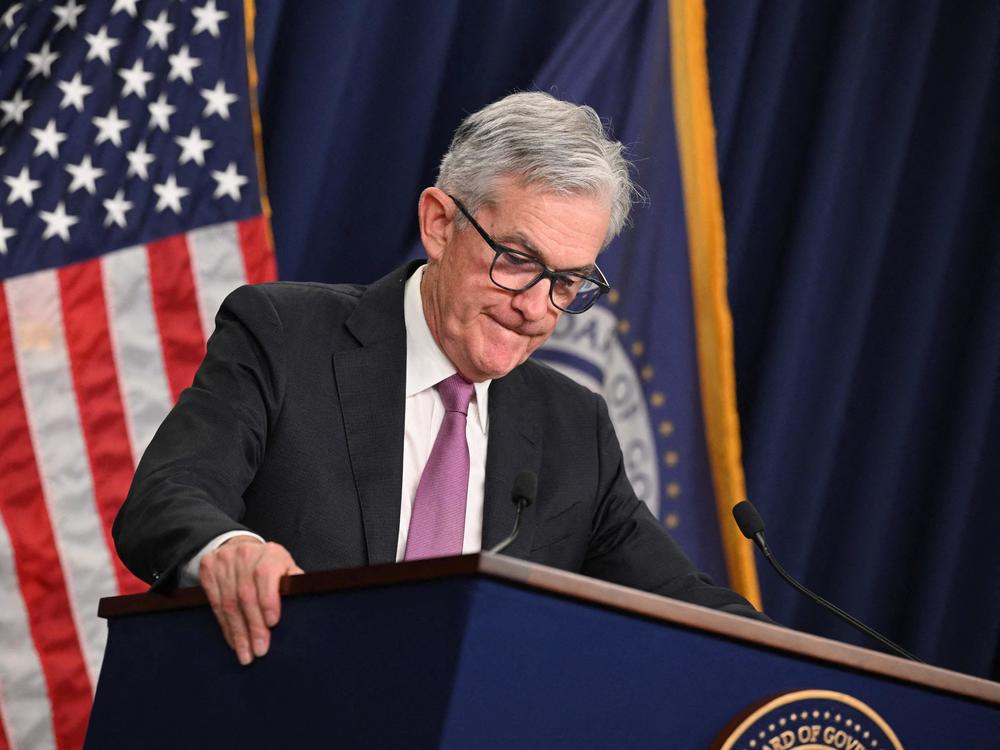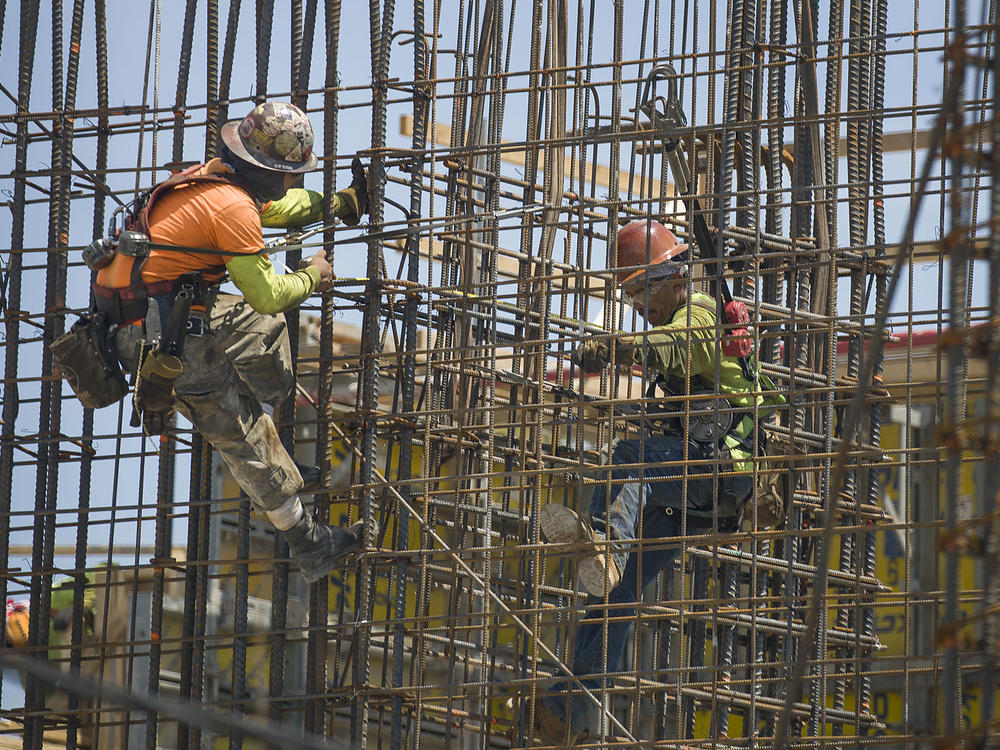Section Branding
Header Content
Is the U.S. in a recession? GDP report will give us clues
Primary Content
On Thursday, we'll get an important report card on the U.S. economy.
GDP, or gross domestic product, tells us how much the economy grew or shrank in the previous quarter.
In the first three months of the year, GDP decreased at an annual rate of 1.6%. That contraction startled economists and investors alike.
Now, there are fears that the economy contracted for a second quarter in a row.
"A common definition of recession is two negative quarters of GDP growth," Treasury Secretary Janet Yellen noted in an appearance on NBC's Meet the Press. "When we've seen that, there has usually been a recession."
But Yellen notes that things are different now in the U.S. economy. "When you're creating almost 400,000 jobs a month, that is not a recession," she said.
What exactly is a U.S. recession?
While two consecutive quarters of negative growth is often considered a recession, it is not the textbook definition.
The official arbiter of a U.S. recession is a nonprofit, non-partisan organization called the National Bureau of Economic Research. An NBER committee made up of eight economists makes that determination, and many factors go into that calculation.
As the Federal Reserve continues to hike interest rates aggressively to fight high inflation, fears of a recession have grown.
But the current economic data have been quite mixed. In the run-up to previous downturns, for instance, the economy was shedding jobs. But the U.S. economy has been adding jobs month after month, as Yellen noted.
"This is not an economy that's in a recession," Yellen said. "A recession is broad-based weakness in the economy. We're not seeing that now."
Yellen also pointed to consumer spending, which has remained strong and she highlighted positive data on the credit quality of Americans.
White House doesn't like the word recession
The White House has taken pains to remind people that just two quarters of negative growth doesn't automatically mean the economy is in a recession.
As the midterm elections approach, the White House is acutely aware of the optics of a country in recession, where Americans are struggling financially. But with the cost of so many things skyrocketing and inflation running at a multi-decade high, a lot of Americans are already taking it on the chin.
A majority, or 65%, of registered voters who responded to a recent Morning Consult/Politico poll said they believe we are already in one.
What are the markers of a recession?
The NBER says the "traditional definition" of a recession is "a significant decline in economic activity that is spread across the economy and that lasts more than a few months."
Employment is a part of the group's calculus, and the labor market has continued to show signs of strength. In June, the unemployment rate held steady at 3.6%, which is near its pre-pandemic low, and the economy added 372,000 jobs.
"I don't think the NBER would look at the data right now and say the economy is in a recession," says Michael Gapen, the chief U.S. economist at Bank of America Securities.
But it's unclear how much Americans will care about whether the current economy satisfies a specific, highly-technical definition, or it doesn't.
Parts of economy are slowing already
What's clear to everyone is the economy is slowing, prices are rising at their fastest pace in decades, and the housing market has started cooling as the Fed raises interest rates aggressively. On Thursday, the central bank raised rates by an additional three-quarters of a percentage point.
Economists acknowledge the headline number on Thursday — how much the economy grew or shrunk on a percentage basis — is likely to attract the most attention, but they say it is important to dig into the underlying data.
"It's the pieces of the puzzle that matter when you're looking at GDP," says Michelle Meyer, U.S. chief economist at the Mastercard Economics Institute.
Among other things, we'll see if household spending, which accounts for 70% of all economic activity, kept pace with inflation.
But as Fed Chair Jerome Powell and other policymakers have acknowledged, at a moment like this, when there is so much uncertainty, and when so many Americans are experiencing economic pain, sentiment and expectations matter and the key for the economy is not to lose too many jobs.
"I think a lot of it comes down to jobs," says Meyer. "Whether you have a job. Whether you expect to keep your job. And what that might mean for your future path of income."
Copyright 2022 NPR. To see more, visit https://www.npr.org.


